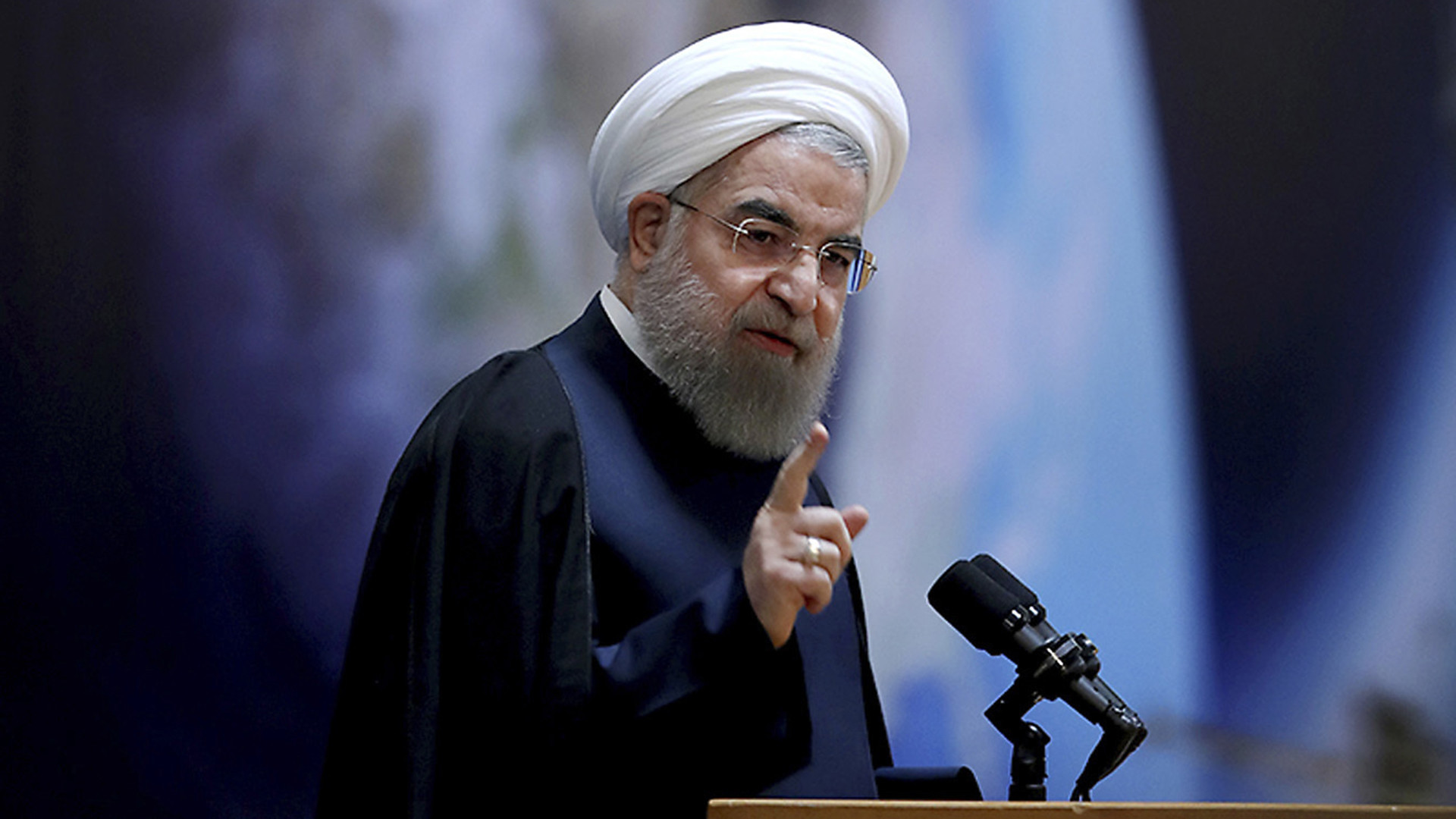
People have been seriously talking for decades about a two-state solution that has not yet materialized, which makes it easy to declare its death.
That it is dead is a fallacy; the parties can choose to negotiate a permanent status agreement any time, and conditions on the ground are not yet at the point where separation is impossible. But it is safe to say that the combination of the Netanyahu government and the Trump administration’s actions have put the two-state agenda as far from being implemented as at any time in the last quarter century.
Let’s begin with Prime Minister Netanyahu and his ongoing legal troubles, since it is impossible to explain his recent actions without the background context. In the past few months, Netanyahu has declared his intention to build the first new legal settlement in the West Bank in over two decades, refused to publicly reaffirm his support for two states, and two weeks ago said that Israel will remain in the West Bank forever and only deepen its settlement presence. Even for Netanyahu, this feels and sounds like a hardened and more entrenched opposition to the two-state solution.
[alert type=blue ]Author: Michael Koplow is policy director of Israel Policy Forum.[/alert]
Also in the past few months, Netanyahu and his closest associates have been under multiple police investigations that have now led to rounds of arrests and may ultimately result in Netanyahu’s removal from office. Case 1000, which involves gifts of cigars, alcohol, and jewelry to Netanyahu from wealthy associates amid suspicions of quid pro quo favors in return – and the news yesterday that billionaire Arnon Milchan is now suspected of bribing the prime minister – is expected to return an indictment against the prime minister. The case took a new turn last month with the announcement that Ari Harow, who served as Netanyahu’s bureau chief and then as his chief of staff, is cooperating as a state’s witness, which is potentially devastating to Netanyahu. Harow was Netanyahu’s closest political aide and was seen as a loyal foot soldier for the entire Netanyahu family, and many Israeli analysts assume that he knows more about the alleged corruption than anyone else. Harow is also instrumental to Case 2000, which involves allegations that Netanyahu offered to end Yisrael Hayom’s status as a freebie newspaper in return for its rival paper Yedioth Ahronoth giving him more favorable coverage.
These negotiations were unearthed when Israeli police discovered recordings of the conversations between Netanyahu and Yedioth publisher Noni Mozes while searching Harow’s home. So it is easy to see why Harow’s deal with state investigators makes Netanyahu uneasy and puts him in a new category of legal peril.
Netanyahu’s problems do not end there. In Case 3000, which involves bribery and corruption in a deal that Israel struck to buy three new submarines from German company ThyssenKrupp that the Ministry of Defense said Israel did not need, the list of those arrested or cooperating with the government reads like a list of invitees to a Netanyahu family bar mitzvah. Israeli police so far have detained and questioned David Shimron, who is Netanyahu’s cousin, personal lawyer, and next door neighbor in Herzliya; arrested Avriel Bar-Yosef, whom Netanyahu appointed as his national security adviser in February 2016 but who then withdrew after the cabinet refused to confirm him; and on Sunday arrested David Sharan, another former Netanyahu chief of staff. While Netanyahu himself has not yet been questioned, it defies belief that with so many intimate confidants and aides involved in a bribery scheme involving naval procurements that were approved by Netanyahu over the objections of the security professionals, this will not at some point reverberate back on the prime minister himself.
Why does all of this matter to the two-state issue? The connection between the legal noose that is tightening around Netanyahu’s neck and his vigilantly hawkish attitude toward two states is not ancillary but direct, and the latter is only going to deepen as the former intensifies. Netanyahu’s acceptance of the two-state solution has always been tenuous at best, with his grudging Bar Ilan speech from 2009 containing so many qualifiers and hedges as to be functionally meaningless. It has always seemed that Netanyahu understands why a bi-national state means the end of Zionism, but that he cannot bring himself to do anything other than maintain Israel’s permanent state of limbo in the West Bank, hovering in the large gray space between separation and annexation. The investigations threatening his continued residence on Balfour Street, however, upend this balance.
When Ehud Olmert faced the legal problems that eventually drove him out of office and into Maasiyahu prison, the makeup of his coalition dictated that the only way for him to save his skin was to try and strike a deal with Mahmoud Abbas. He was the head of Kadima, a party that was created for the sole purpose of carrying out the 2005 Gaza disengagement and supported a two-state solution. The next largest party in the coalition was Labor, which also supported an agreement with the Palestinians. Trying to push through this policy imperative in order to gain political protection from his legal troubles made sense for Olmert, even though he did so in a hastily reckless manner and was ultimately unsuccessful. There is little question though that facing legal jeopardy created a sense of urgency for Olmert on the two-state front and drove him to policy decisions that he may not have otherwise taken.
Netanyahu’s incentives are the precise opposite. He is the head of a coalition that is avowedly against two states, and in some ways isolated among his own cabinet members in his reluctance to steam ahead with plans that would annex the West Bank in whole or in part. Settler leaders do not trust that he is sufficiently committed to their agenda, and he sees his greatest competition coming from Naftali Bennett and others to his right.
In the midst of so many investigations and scandals, the only hope he has is for his ministers and coalition to back him to the hilt, and the only path forward in order to maintain that support is by disavowing any hints or indications he has ever given that he favors a two-state solution in any guise. His coalition partners do not particularly care about Netanyahu’s corruption, but they do care about deepening the settlement project, and they will sell him out on the first if he sells them out on the second. As the investigations progress, Netanyahu is only going to become more publicly intransigent and reckless with regard to two states, Abbas, the Palestinians, and halting the spread of Israel’s presence in the West Bank. He cares about his political survival above all else, and this is the only way to preserve it. The collateral damage to the two-state agenda is going to be real, and it is going to be lasting.
On top of this comes the Trump administration’s continuing refusal to support a two-state policy, which may have held some advantages back in the spring but is now nothing but a roadblock to any meaningful progress. The White House’s refusal to even acknowledge what the end game has to be exposes the efforts to get the two sides together as callow and nescient. It is like watching a real life enactment of the emperor’s new clothes, where the administration’s intentions may be perfectly good but the president and his team are the only ones who do not seem to realize that their refusal to embrace the only possible outcome of negotiations makes any negotiations pointless.
This is an unfortunately wasted opportunity, because the administration actually started off well, built itself leverage with both sides, had initial trust from all of the relevant regional actors, but is now flailing around in the dark. At the same time that Netanyahu is running away from two states as fast as he can, the Trump White House thinks that it can refer to supporting the two-state solution as biased and yet still insist on bringing the Israelis and Palestinians to the negotiating table after having torpedoed the very point of negotiations. The absurdity of this is evident on its face, and it guarantees the failure from the outset of a venture whose success was remote to begin with.
If ever there was a time for genuine alarm, it is now. We have seen years of lack of progress, but this is something different. This is an actual rollback of decades of policy, and it will have real consequences. Perhaps it will mean annexation of parts of Area C, perhaps it will mean the collapse of the Palestinian Authority, and perhaps it will mean a Palestinian push for one state. The Trump administration is signaling to the Israelis that they should take any steps they want in the West Bank, and signaling to the Palestinians that an approach involving negotiations will bring only the most limited gains. Even the most optimistic scenario – that nothing changes on the ground – means starting again at square one in getting the Israelis, Palestinians, and Americans to all agree on a common endpoint, something that took years to get to in the first place. It is surreal to be at a point where sustained and serious pressure is required simply to get leaders to accept the two-state concept in theory, let alone hash out the details. Anyone who thinks that real damage is not being wrought should remember George Orwell’s maxim that to see what is in front of one’s nose needs a constant struggle.
[toggler title=”SOURCE” ]This article was originally published at Ottomans and Zionists.[/toggler]



